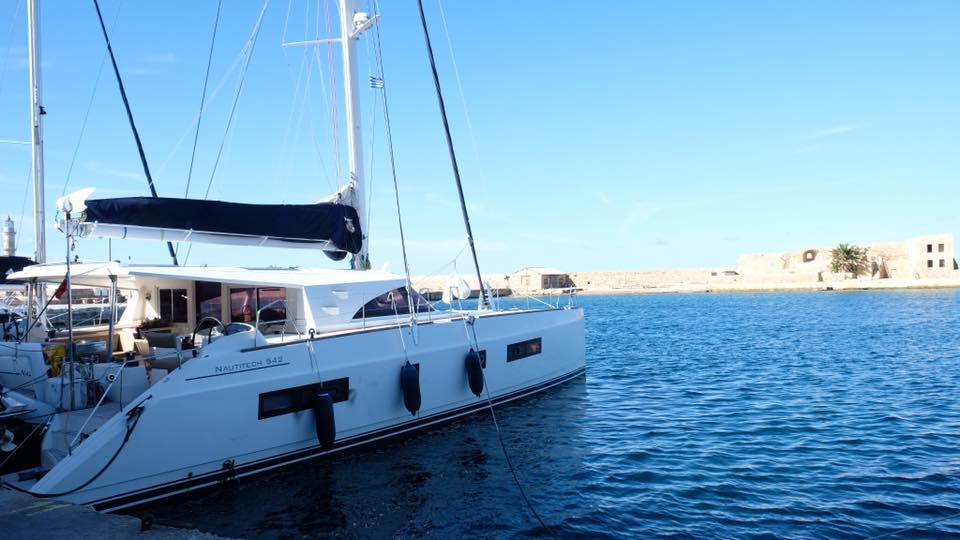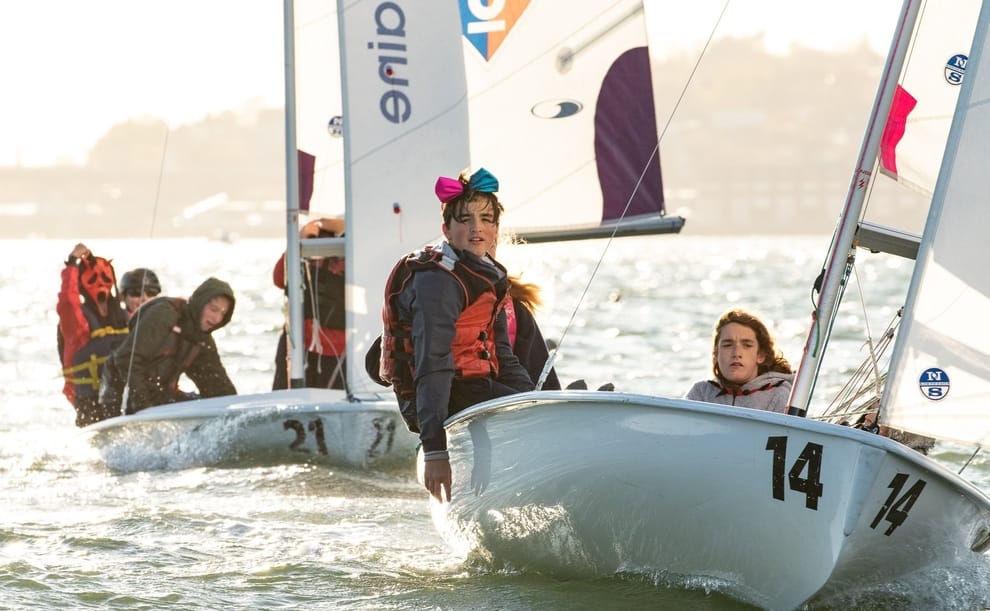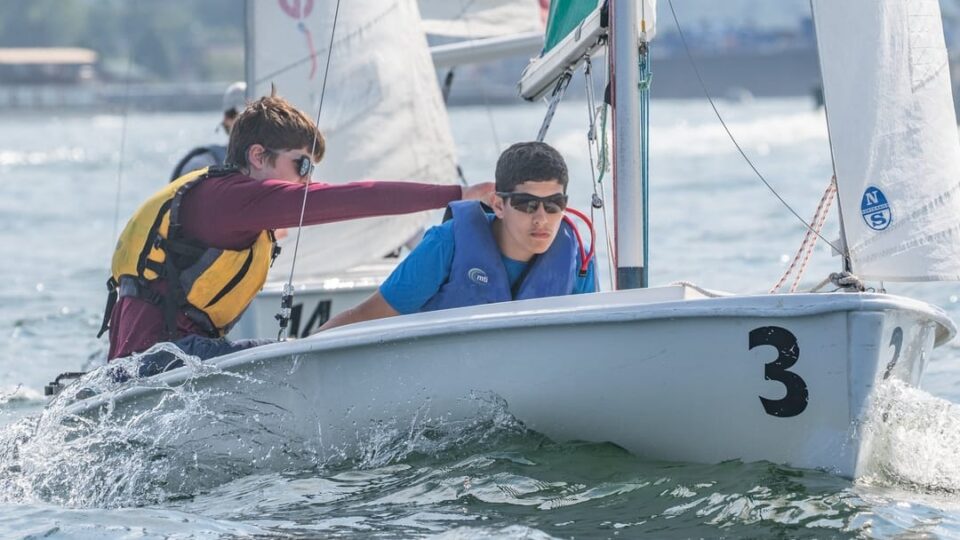Is Sailing a Dying Sport?
Sailing appears to be declining in many regions in comparison with a decade before. There are no such quantities of new boats that were manufactured in the past. Furthermore, there are numerous restrictions by city-controlled harbors along the coast that primarily affect the most vulnerable boats. On top of that, there’s also the greed for profit. Add to this the marina and insurance regulations. Then there are the economy’s ups and downs. Add in the greedy marine suppliers, such as the fabric mills that drove up the cost of boat covers. What else would you anticipate than a drop in sailing? But, this is of course the negative aspect of this question. Sailing as a sport is still the preferred activity by many. In this article, we will examine this matter in detail so as to conclude if sailing is really a dying sport. Keep reading!
An Introduction to Sailing as a Sport
Sailing’s origins as a sport may be traced all the way back to antiquity. Putting aside whether or not you enjoy racing and focusing on the larger world of sports, it’s fascinating to engage in sailing, particularly yacht racing, in that context. All recognized sports, particularly the common ones, have a sense of drama and competition, but none involve the elements of the outer world as much as sailing. It’s amazing that a sporting event, like the high-profile Volvo Ocean Race, contains the component of all-out adventure that a competition like this does.
Teams live in the tightest of quarters in the most unpleasant circumstances for nine months on a race route that spans four oceans and five continents, racing 24 hours a day for weeks on end. There’s no timer on the game or a flight to the next location where a similar dilemma awaits. There is no stadium where a horde of adoring fans will show up to demonstrate their unwavering support. In fact, it’s the opposite. It’s onward into the unknown in this arena, an unknown that could contain perils that no one onboard has ever encountered in regions where very few people have been.
The difference with other sports is that sailing lies in the concept that strategy is more than crucial. Winning is based on outwitting and making fewer mistakes than the competition in practically all major sports. Sailing is similar to the others in that it requires participants to manage anything and everything that an open ocean environment has. A profound awareness of ever-changing weather is, of course, another key factor at play, in addition to the physical ones. Open ocean sailboat racing, perhaps more than any other sport, necessitates a high level of scientific expertise and excellent physical and mental skills.
It’s worth mentioning that sailing is one of the oldest Olympic sports. This sport is around for a long time and was even featured in the 1900 Olympic games in Paris, France. For years, sailing has been a significant feature of the Olympic games, and it has developed over time. The varieties of sailboats that can compete in different Olympic events have evolved over time. There’s a lot that goes into choosing which boats can compete and what kinds of events can take place. Nonetheless, sailing has been a component of Olympic sports in some shape or another for a long time.

>>Also Read: Is Sailing Dangerous?
Is Sailing Really a Sport?
Although sailing as a mode of transportation predates history, sports sailing, also known as yachting, appears to have begun in Holland in the 17th century. It was then introduced into England by Charles II in 1660 and subsequently spread to the American colonies. It was customary for sport sailors to form yacht clubs for social and recreational purposes back then, as it is now. The world’s first such club was established in Cork, Ireland, in 1720. The New York Yacht Club is the country’s oldest continuously operating club (NYYC; founded 1844). Members of the NYYC raced the schooner America against British rivals around England’s Isle of Wight in 1851. They deeded their trophy to the NYYC after winning.
And, this was America’s Cup! After which the oldest and most famous event in international sailboat racing was named after it. Between 1851 and 1983, the United States won every America’s Cup except one, which was won by Australia. Since the 1980s, major changes in boat design, disputes involving Cup teams, and even sabotage claims have altered and roiled Cup racing.
Ocean racing has acquired popularity as a difficult and dangerous sport, particularly in long-distance solo contests. The Newport-Bermuda Race, the Transpacific Race, the Volvo Ocean Race, the Vendée Globe, the Velux 5 Oceans Race, and the Clipper Race are all major ocean races. Francis Chichester circumnavigated the globe alone in 1967, making only one stop. The Golden Globe competition a year later pioneered nonstop around-the-world solo sailing. Ocean racers now frequently sail multi-hull yachts and have state-of-the-art communication gear and satellite-generated weather information.
Sailing is basically a sport since it necessitates a high level of expertise. You can’t just throw someone on a boat without any experience and expect them to be able to sail. Sailing entails a lot, and it will put you to the test both mentally and physically.
Sporting events in sailing basically test people’s abilities against those of other highly competent persons. In these events, there are two or more skilled ship crews competing against each other. This offers an exciting competition that comes down to who is the most skilled and knowledgeable. Sailing competitions are, in many ways, one of the most popular sporting events on the planet. Of course, before you can compete in any capacity, you must devote time to learning how to sail and develop your skills.
Sailing is clearly a sport, according to the strict meaning of the term. It may not have the same appeal or sponsorship as other popular sports in the world. But, this is one of the main characteristics that make this sport distinguishing itself from others.

>>Also Read: Is Sailing an Expensive Sport to Learn?
Why Sailing is Declining?
So, is sailing losing popularity? Sailing on small crafts is more common than sailing on boats. On small lakes and protected ports, fleets of sunfish, dinghies, Comets, and other centerboards still exist. I bring this up because it’s all too easy to think simply in terms of luxury yachts or USSA racing vessels. The greatest barrier to sailing’s appeal is not really the cost, but rather an education and a recognition that sailing is a sport. Non-sailors may think we’re all drinking martinis and enjoying the breeze onboard the sailboat. More people who already enjoy being in the water would be hooked if they just start the sport as beginners. Not only is sailing a great sport, but it offers a lifetime of interest, new technology. And, sailing itself is, of course, for any age group.
There are lots of sources like people from marinas, sailing clubs, yacht brokers, sailing schools saying that young people are not coming into the sport like they used to do in the past. This is because there are too many other competing sports and experiences. Also, kids don’t want to devote time to just one thing. There’s also the saying that “sailing is for rich people” which of course, is not true.
But, people assume that sailing is a declining activity, with established members leaving and new ones unable to join. With so many other activities to choose from, it’s understandable that there’s some anxiety about how to best promote and improve sailing. And, also with the aim of attracting newcomers and keep the more experienced interested. Ideas are flowing in from all angles, which is fantastic because I believe it is beneficial to have this ‘problem’ at the forefront of our minds. Sailing, like any other outdoor sport, competes with the virtual world. It also has to compete with other sports that may require less expensive equipment and infrastructure. It’s a fact that boats need time spend on them out and on the water in order to get the most from them.
Note that it’s difficult to have a comprehensive solution if we don’t understand the problem. Basically, sailors aged 55 and older make up the largest age group. A sailboat owner’s average age is 54 years old. There is only a small bubble (13%) of young sailors between the ages of 15 and 24. This includes both males and females. Today’s sailors, on the other hand, usually stop when they reach the age of 25. As a result, there’s nearly no one between the ages of 25 and 44 that sails. Also, the average sailor is 11 years older than the overall population. Based on basic population data, it’s easy to conclude that sailing’s future is declining. Unless it can quickly attract newcomers of all ages under 40. And of all genders with a wider variety of income levels.
Summary – Is Sailing Really a Dying Sport?
There is a widespread belief that sailing is an elitist sport. This has hampered its ability to garner wider acceptance and tarnished its reputation. In areas with easy access to lakes and oceans, sailing, or yachting, should be a sport for all. But, of course, the image of wealthy people with large boats lounging in clubs behind strictly private signs is not helpful to the development of the sport. However, there is a contradiction here. Because the development of interest among young sailors has been positive, with greater involvement in dinghy sailing.
As a result, schools are becoming more interested in including sailing into their sports curricula. The drive for change inside the ISA began with the dinghy community, where many people who are now cruisers got their start in the sport. The breakthrough that sailing requires to attain widespread public acceptance has yet to occur. More people in the broadcasting industry have taken up the sport. However, there is still a perception in the media that sailing is a sport that requires a lot of money. And this is reinforced by the oft-quoted bad analogy of the phrase: if you want to know what yacht racing is like just stand in a cold shower tearing up twenty dollar bills.
Sailing – and yacht – clubs, on the other hand, are part of the problem in spreading the concept of sailing as a sport for everybody. Even if they don’t supply the information, some clubs argue that the sport doesn’t get enough attention. This is because of their bad public relations and lack of information to the press. There are honorable exceptions, such as clubs that give good information circulation and websites. But there are many other clubs that are terrible at sending information. And, whose websites haven’t been updated in a long time.
To exist, a sport requires a well-organized framework, which clubs can supply. Clubs must also have members who pay to join and support them. They will cease to exist if individuals use them without joining. And, as a result, without providing ongoing financial and volunteer support. The economy has clearly been a contributing role in recent years. People have been short on spare income, and they also avoid non-essential spending, particularly among families. Some clubs offer various membership arrangements, but I continue to believe that there can be more fresh and flexible alternatives. Especially in order to promote crews, which are in limited supply on most active racing boats.
There are also people who sail but do not belong to a club for a variety of reasons. This can be a lack of desire, ability, or proximity to clubs. They do, however, sail; are they outside of the system, and are they really in the sailing sport? What do influences them considering the fact that they participate or not in sports? There are also the classic boats, which receive a lot of support. Some are ISA members, some are members of clubs, but many are not. Sailing has a lot of support in this area, and there are a lot of organized events that attract a lot of people. Should the ISA reach out to these sailors and this particular type of sailing?
This, among many other factors, are of great importance in order to bring together everyone who is interested in sailing in all of its forms. When increased facilities and recognition are sought, or when the government has to enforce new regulations, a united front would be a powerful force that official authorities could not ignore.
Sailing is a sport that all people of all ages and abilities can take part in. With the added benefit of allowing families to engage together if desired. Furthermore, the enjoyment and sense of friendship abound the sailing experience.
Also, perhaps there was too much emphasis on winning races and achieving high-performance levels back then. It is certainly beneficial for sailors to strive for the highest levels of success. But have we become overly focused on the competition at the expense of the pleasure of participation, of being on the water? Had the sailing organizations and clubs have been overly focused on their own high-performance program and those who qualify for it, rather than providing enough assistance to other sailors who may not have made it through their systems but want to compete on the international stage and should there be measures to facilitate that? Lastly, too much concentration on racing is important but adequate support should be given to other forms of sailing, encouraging cruising.
